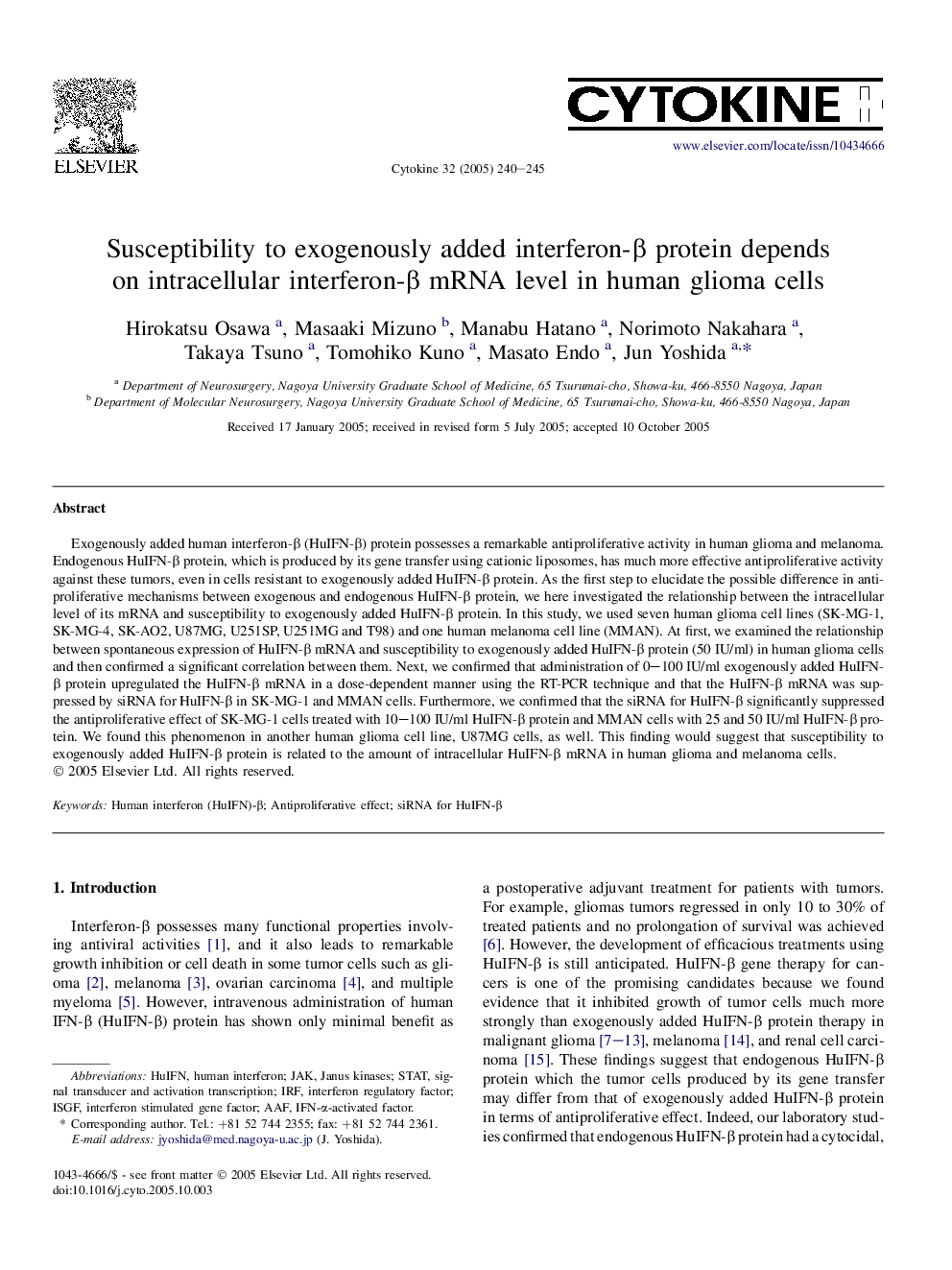| Article ID | Journal | Published Year | Pages | File Type |
|---|---|---|---|---|
| 9110746 | Cytokine | 2005 | 6 Pages |
Abstract
In this study, we used seven human glioma cell lines (SK-MG-1, SK-MG-4, SK-AO2, U87MG, U251SP, U251MG and T98) and one human melanoma cell line (MMAN). At first, we examined the relationship between spontaneous expression of HuIFN-β mRNA and susceptibility to exogenously added HuIFN-β protein (50 IU/ml) in human glioma cells and then confirmed a significant correlation between them. Next, we confirmed that administration of 0-100 IU/ml exogenously added HuIFN-β protein upregulated the HuIFN-β mRNA in a dose-dependent manner using the RT-PCR technique and that the HuIFN-β mRNA was suppressed by siRNA for HuIFN-β in SK-MG-1 and MMAN cells. Furthermore, we confirmed that the siRNA for HuIFN-β significantly suppressed the antiproliferative effect of SK-MG-1 cells treated with 10-100 IU/ml HuIFN-β protein and MMAN cells with 25 and 50 IU/ml HuIFN-β protein. We found this phenomenon in another human glioma cell line, U87MG cells, as well. This finding would suggest that susceptibility to exogenously added HuIFN-β protein is related to the amount of intracellular HuIFN-β mRNA in human glioma and melanoma cells.
Keywords
Related Topics
Life Sciences
Biochemistry, Genetics and Molecular Biology
Endocrinology
Authors
Hirokatsu Osawa, Masaaki Mizuno, Manabu Hatano, Norimoto Nakahara, Takaya Tsuno, Tomohiko Kuno, Masato Endo, Jun Yoshida,
